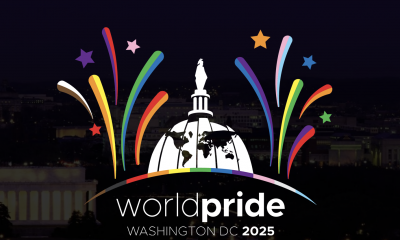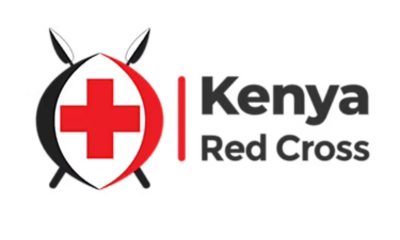Africa
Uganda, Kenya, Tanzania move to further curtail LGBTQ rights
Ugandan MPs considering another anti-homosexuality bill
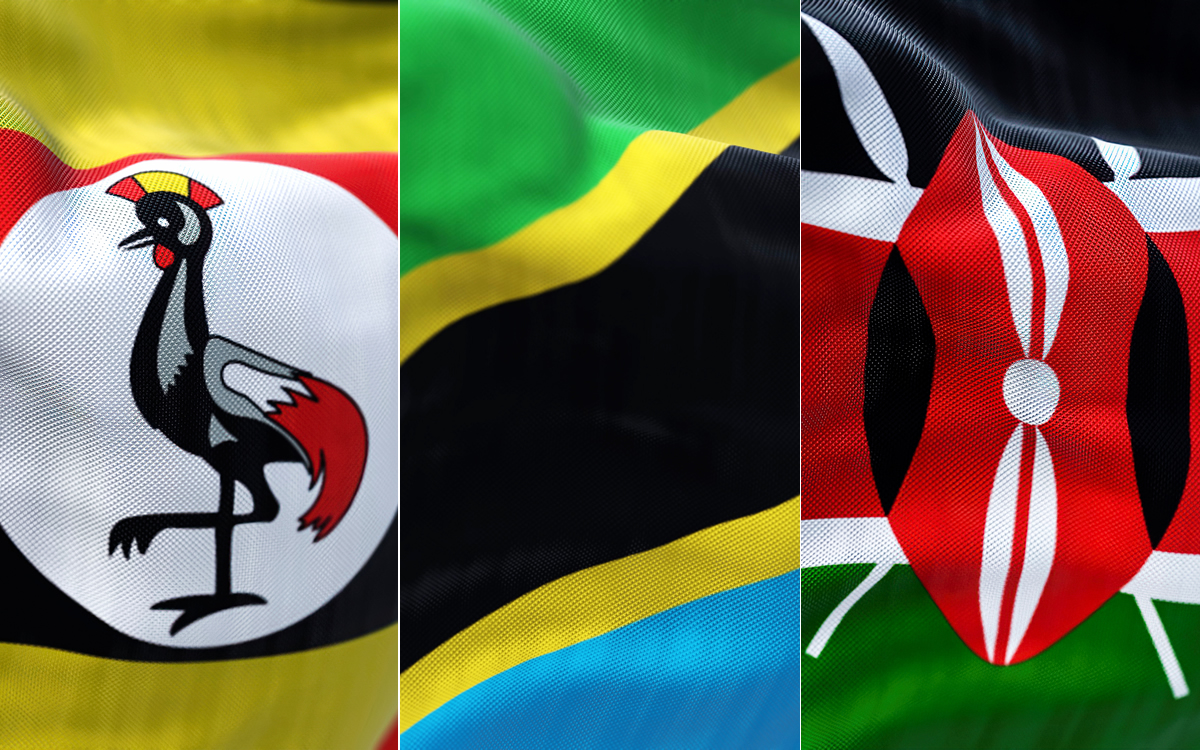
Three East African countries are tightening the noose on the so-called promotion of homosexuality through new laws and banning LGBTQ-specific content.
Lawmakers in Uganda and Kenya have introduced bills that would curtail the promotion of LGBTQ-specific activities with stiff penalties above their respective penal codes that criminalize consensual same-sex sexual relations. Tanzania has recently banned LGBTQ-specific books.
Uganda’s Anti-Homosexuality Bill, 2022, would sentence anyone who identifies with “lesbianism, gay, transgender, queer or any other sexual or gender identity contrary to the binary categories of male and female” to 10 years in prison.
The proposed law that was set to be tabled any time after its postponement on Wednesday for further preparation would impose a 5-year prison sentence or a fine of around $27,000 or both to anyone who is found guilty of promoting homosexuality in Uganda. The measure’s definition of promotion includes production, procuring, marketing, broadcasting, disseminating using electronic devices, publishing LGBTQ pornography and funding or sponsoring homosexuality.
Uganda’s latest move follows a growing number of LGBTQ-specific activities in the country that include the painting of rainbow colors at a children’s park in January that a local council removed because it went “against the norms of the people of Uganda.”
Moreover, Uganda’s NGO Bureau, which monitors NGOs that operate in the country, in January recommended a new law that “prohibits the promotion of LGBTQ activities in the country.”
Also, the move results from the Church of England’s decision earlier this year to allow its priests to bless same-sex couples. This angered the Anglican Church of Uganda and Muslims who called upon MPs to crack down on homosexuality through legislation.
Anyone convicted of providing a house, a brothel or any other place in which LGBTQ-specific activities can take place could face up to seven years in jail under the new bill.
“Where the offender is a corporate body or a business or an association or a non-governmental organization, on conviction its certificate of registration shall be canceled and the director, proprietor or promoter shall be liable to two years imprisonment on conviction,” the bill reads.
Anyone found guilty of conducting a same-sex marriage could face up to two years in prison and the business that hosts such a ceremony could lose their business license.
The Office of the U.N. High Commissioner for Human Rights has cautioned Uganda’s Parliament against proceeding with the bill, while noting that the “State has a duty to ensure full protection of all people from violence and discrimination regardless of sexual orientation or gender identity.”
Frank Mugisha, a Ugandan LGBTQ and intersex rights activist, has raised concerns about a rising number of homophobic attacks committed by people and security officials in the country since January.
“The LGBTQ community continues to face a harsh operational environment, an increase in direct and indirect attacks, and surveillance in its spaces. This has made it difficult for LGBTQ organizations to do advocacy and deliver services to the communities because of the fear of being arrested by security agencies,” Mugisha said in a statement.
He has documented dozens of harassment and assault incidents to LGBTQ and intersex people, including one on February 18 where a transgender woman residing in Kampala, the Ugandan capital, was assaulted at a friend’s party after discovering her gender.
In Kenya, a bill that would further criminalize and punish people who engage in homosexuality and promote it is poised to be introduced in the country’s Parliament.
“The proposed law intended to further the provision of Article 45 (2) of the Constitution of Kenya and to protect the family will not only consolidate the existing laws relating to unnatural sexual acts but also increase the penalty for those convicted of engaging or promoting the acts to imprisonment for life or consummate sentence,” reads the notification. “Article 45 (2) of the constitution provides that every adult has the right to marry a person of the opposite sex based on the free consent of the parties to start a family, which is recognized as the natural and fundamental unit of society.”
Last week’s Supreme Court ruling that allows an LGBTQ and intersex rights group, the National Gay and Lesbian Human Rights Commission, to register as an NGO after years of court battles with the country’s NGOs Board has elicited criticism from religious leaders, lawmakers, the president and Kenyans themselves.
“We respect our court’s decisions but in Kenya, we have our culture, traditions, and religious beliefs. We can’t go the road of women marrying women or men marrying men. Same-sex marriage will happen somewhere else and not in Kenya,” President William Ruto stated on March 2 at a women’s function in Nairobi, the country’s capital.
Pressure is mounting on the seven Supreme Court judges to reverse the ruling, with Attorney General Justin Muturi vowing to challenge it. Muslim and Christian groups have planned a March 17 protest against the ruling.
The ruling has put the judges in a bind since a Supreme Court decision is final and cannot be appealed in any court in the country. The East African Court of Justice, which is based in Arusha, Tanzania, can consider an appeal.
Critics of the ruling argue that the queer group does not deserve an association, since Kenya’s penal code criminalizes homosexuality and the Supreme Court decision gives leeway for legalizing it from an appeal pending in the country’s second highest court.
Thirteen groups that include the American Jewish World Service, Amnesty International-Kenya, the National Gay and Lesbian Human Rights Commission and the Kenya Human Rights Commission on Thursday issued a joint statement in support of the ruling.
“The judgment has demonstrated the great strides that Kenya has taken to promote the rule of law, democracy, and human rights,” it reads.
The groups insist that granting the LGBTQ and intersex community the right to form associations is in line with the spirit of Kenya’s constitution, which guarantees freedom of expression under Article 33 and freedom of association under Article 27 without any form of discrimination.
Tanzania, which also criminalizes same-sex relations, has joined neighboring Kenya and Uganda in restricting LGBTQ and rights.
President Samia Suluhu last month described LGBTQ rights as “imported cultures” as she cautioned university students against it.
The Tanzanian government recently banned a popular series of children’s books from schools that contain LGBTQ-specific content.
“The Diary of a Wimpy Kid” by U.S. author Jeff Kinney and another book, “Sex Education: A Guide to Life” were removed from libraries in public and private schools. The government has also committed to increasing its surveillance on books with LGBTQ-specific content.
Lesotho
LGBTQ activist murdered in Lesotho
Authorities have arrested a suspect in Kabelo Seseli’s death
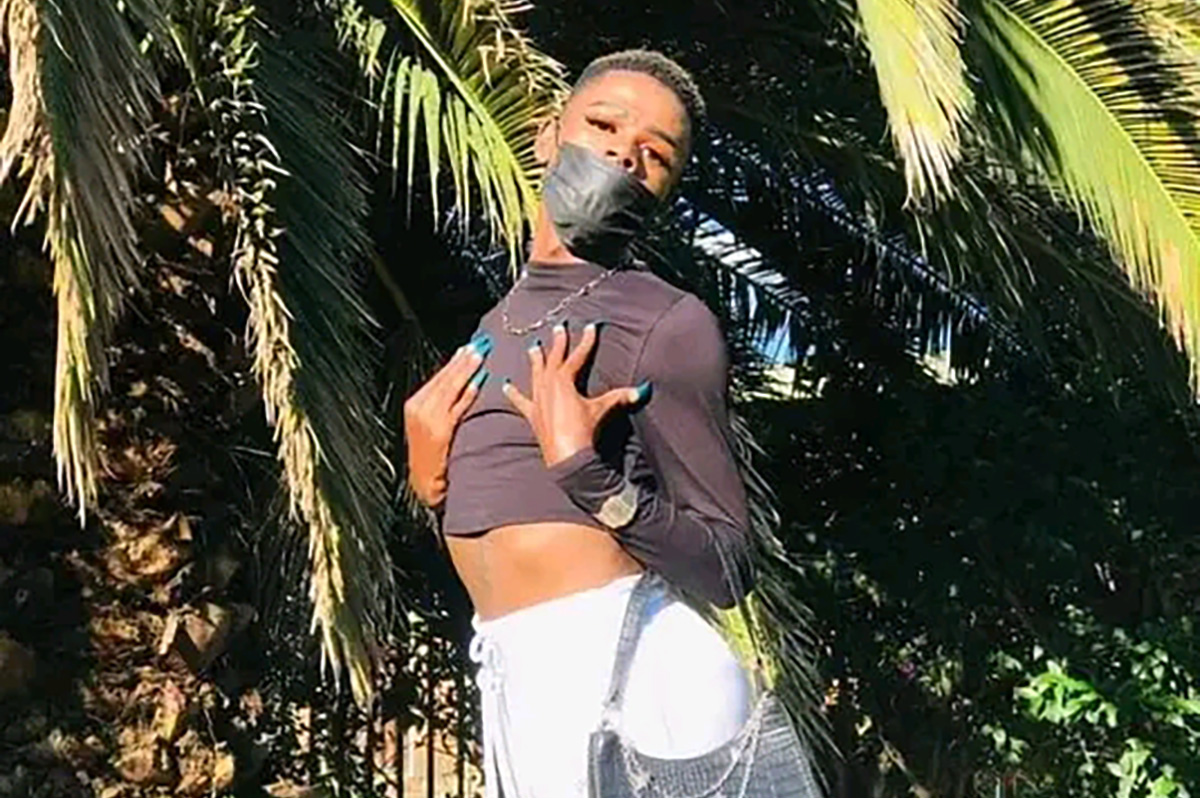
Kabelo Seseli, a gay crossdresser and LGBTQ activist in Lesotho, was murdered over the weekend in a suspected homophobic attack.
According to the People’s Matrix Association, a LGBTQ rights organization, Seseli’s body was found with stab wounds on their neck and genitals.
“This was not just a murder, it was a hate-driven, dehumanizing act meant to send a message of fear and rejection to our community,” said the People’s Matrix Association in a statement posted to its Facebook page on April 29. “Kabelo deserved to live. Kabelo deserved dignity, safety, and the freedom to exist without fear, just like every Mosotho.”
The LGBTQ rights group also said it is demanding action, justice, and protection from the government, especially given the fact authorities have arrested a suspect.
“We strongly condemn this act of violence and call on the government of Lesotho and law enforcement authorities to conduct a thorough investigation and ensure that those responsible are held fully accountable,” said the People’s Matrix Association. “We also urge leaders and the public to reflect on the role of hate speech and social stigma, which continue to incite violence against LGBTI individuals across our country. We demand action.”
Victor Mukasa of Trans and History Intersex Africa also condemned Seseli’s murder.
“Death is a fact of life, but murder is criminal,” said Mukasa. “Murder of people because they are LGBTIQA+ or for belonging to a particular social group is a hate crime.”
Thato Motsieloa, a gay crossdresser and LGBTQ activist, said he was “deeply distraught to learn about the brutal murder of Kabelo Seseli.” Motsieloa said he and Seseli met on Facebook.
“Although we never met in person, we had plans to do so,” said Motsieloa. “The manner of his death is particularly heartbreaking, and the fact that his killers desecrated his body by removing his private parts is utterly heinous. I hope justice is served, and those responsible face the consequences of their horrific actions. My sincerest condolences go out to Kabelo’s family, may his soul rest in eternal peace.”
Lesotho in 2012 decriminalized consensual same-sex sexual relations. Marriage, however, remains limited to heterosexual couples. There have also been sporadic reports of anti-LGBTQ hate crimes since 2012.
The International Commission of Jurists, in partnership with Outright International, a New York-based LGBTQ advocacy group, in 2022 held a workshop with the Lesotho judiciary that focused on human rights for the LGBTQ community.
The judiciary noted LGBTQ people exist, but acknowledged there is no local jurisprudence on their rights, even though the country’s constitution guarantees the right to respect private and family life and freedom from discrimination.
Religious and cultural norms, like in many African countries, play a pivotal role in how society perceives the LGBTQ community. Many people in Lesotho disregard the existence of LGBTQ people, even though the government is trying to make room for the acknowledgment of LGBTQ rights.
Outright International Africa Advocacy Officer Khanyo Farise says the judiciary’s active engagement with the LGBTQ community is an important step towards ensuring LGBTQ rights are upheld.
“Judges and judicial officers play an important part in ensuring access to justice for LGBTIQ+ people, but also have an important role in producing judgments which can advance their human rights,” said Farise.
ICJ Africa Communications and Legal Officer Mulesa Lumina said though the ICJ is encouraged by these developments, particularly the willingness of judiciary members to understand the plight of the community, LGBTQ people continue to face harassment, discrimination, abuse and violence because of their actual or perceived sexual orientation and gender identity.
“We will continue working with partners, such as the People’s Matrix and Outright International, to ensure the enforcement of the country’s obligations under international human rights law, which entitle LGBTIQ persons to the full range of human rights without discrimination,” said Lumina.
Kenya
Kenya Red Cross-owned hotel to host anti-LGBTQ conference
Speakers from US, European countries to participate in May 12-17 gathering
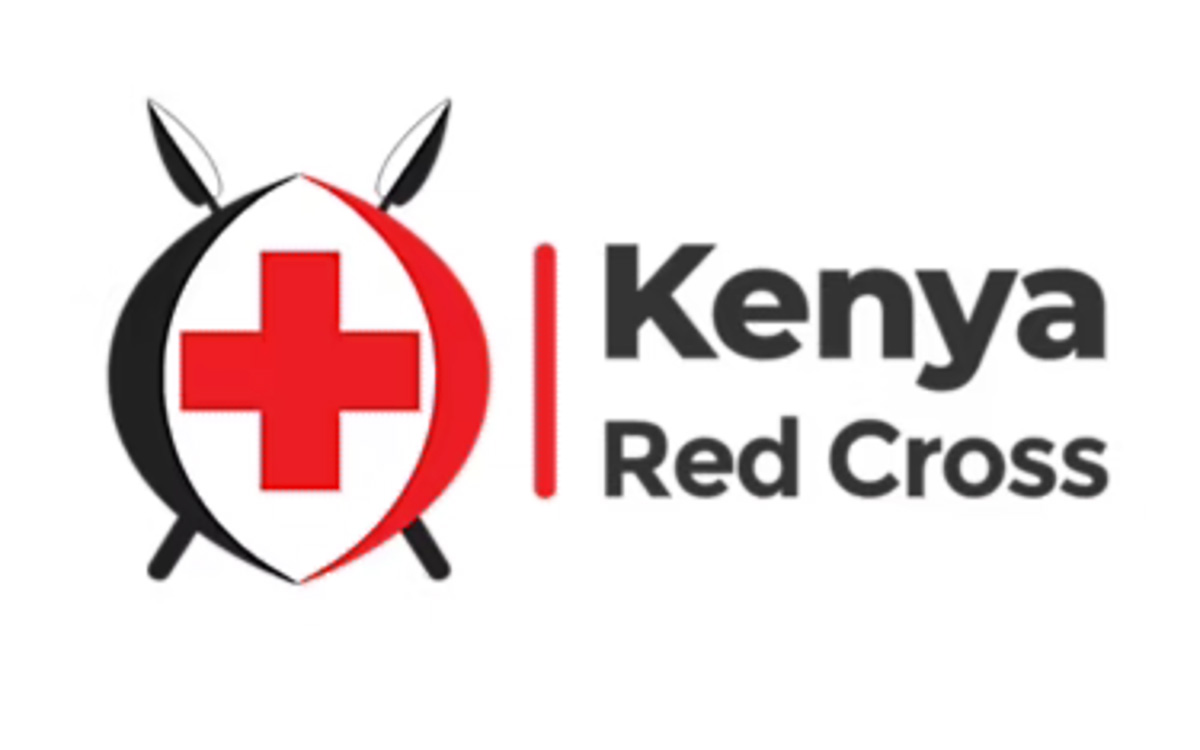
Plans to host a family values meeting next month in a 5-star hotel in Nairobi that the Kenya Red Cross Society co-owns have sparked an uproar among local queer rights groups.
The groups accuse the Kenya Red Cross of violating its Global Fund commitment of protecting key populations by allowing its Boma Hotel to host an “anti-gender and anti-LGBTQ” conference.
Influential guest speakers from the U.S., the Netherlands, Spain, and Poland will preside over the Pan-African Conference on Family Values that will take place from May 12-17. The Kenyan advocacy groups say these speakers’ organizations are globally recognized for undermining LGBTQ rights.
“As the principal recipient of Global Fund in Kenya, hosting this event contradicts (the) Red Cross’s humanitarian mission and threatens the safety and dignity of people living with HIV, women and LGBTQ+ individuals, the communities that Kenya Red Cross Society has long committed to supporting,” the queer rights groups state.
The LGBTQ groups that have criticized the Kenya Red Cross include Upinde Advocates for Inclusion, the Initiative for Equality and Non-Discrimination, and Gay and Lesbian Coalition of Kenya. They have also launched an online signature collection drive to compel the Kenya Red Cross to withdraw the hotel from hosting the “Promoting and Protecting Family Values in Challenging Times”-themed conference.
“The event’s so-called ‘family values’ narrative is a smokescreen for policies that push hateful legislation and promote death, discrimination, femicide, gender-based violence, and restrict fundamental freedoms across Africa,” the groups said.
The pro-life Western organizations that are scheduled to participate in the conference include Family Watch International from the U.S., CitizenGo from Spain, the Ordo Luris Institute from Poland, Christian Council International from the Netherlands, the New York-based Center for Family and Human Rights (C-FAM), and the Foundation for American Cultural Heritage. Their local counterparts include the National Council of Churches of Kenya, the Kenya Christian Professionals Forum, the Africa Christian Professionals Forum, and the Evangelical Alliance of Kenya.
C-FAM President Austin Ruse; Family Research Council Vice President for Policy and Government Affairs Travis Wever; Global Life Campaign Executive Director Thomas W. Jacobson; and the Rev. Ricky Chelette, executive director of Living Hope Ministries, Inc., and president of the Institute of Biblical Sexuality are among the U.S. guest speakers. Other participants include Henk Jan van Schthorst, president of Christian Council International’s board of directors, Ordo Luris Institute President Jerzy Kwasniewskie and his colleague, Rafal Dorosinski, director of the group’s Legal Analysis Center.
The Kenyan groups through their online petition — “Tell Red Cross Kenya Not to Give Hate a Platform” — has so far raised more than 1,000 of the 10,000 signatures they hope to collect. The petition is addressed to Red Cross Kenya Secretary-General Ahmed Idris and his predecessor, Abbas Gullet, who is the hotel’s director.
“We call on you to immediately cancel this booking and publicly reaffirm Red Cross’ commitment to human rights, health and inclusivity,” the petition reads. “Failure to act will raise concerns about whether (the) Red Cross can still be trusted by the community to lead with empathy and fight for their rights.”
The Kenya Red Cross, however, maintains the Boma Hotel is a separate entity, even though public records indicate it is one of the facility’s shareholders.
The LGBTQ groups note the hotel should be a safe space that promotes inclusion, not platforms that enable “harmful gathering” for hate and exclusion by “dangerous groups.”
“By providing a venue for this event, Red Cross directly enables a platform for hate and discrimination — a stark contradiction to the values of inclusivity, humanity, and nondiscrimination that the organization claims to uphold,” they said.
The organizations further warn that proceeding to host the conference threatens the relationship between the Red Cross and the marginalized communities who have long depended on the humanitarian organization for support and protection. CitizenGo has nonetheless criticized the LGBTQ groups, which it describes as “radical activist groups” for “trying to silence a pro-family event” and asked the Kenya Red Cross and the Boma Hotel not to back down.
“These groups are calling the event ‘hateful’ because it affirms the natural family — marriage between a man and a woman — and the dignity of every human life, including the unborn,” Ann Kioko, the group’s campaign director for Africa and the U.N., said.
Through an online counter signature collection drive, Kioko holds CitizenGo and other groups won’t be intimidated, silenced or apologize to the queer rights groups for defending “our families, our faith and our future”.
“The real goal of these foreign-funded activist groups is to impose LGBTQ and gender ideologies on Africa — ideologies that have led elsewhere to the confusion of children, the breakdown of family structures and the rise of sexual libertinism that results in abortion, STIs and lifelong emotional and psychological trauma,” Kioko stated.
Africa
LGBTQ activists in Africa work to counter influence of American evangelicals
Lawmakers continue their crackdown on queer rights

American far-right evangelical organizations fund African MPs and religious groups and support their advocacy efforts against homosexuality.
The support for the two influential groups on the continent has contributed to increased homophobic rhetoric for conservative family values through religious teachings and public policy. Open for Business, a coalition of leading global organizations that champion LGBTQ inclusion, revealed this trend in its latest report that surveyed the East African countries of Kenya, Uganda, Tanzania, and Rwanda.
“The anti-LGBTQ+ agenda driven by Christian groups in Kenya and Uganda has received significant funding and support from foreign anti-rights groups, particularly from U.S. far-right evangelical organizations,” the report states.
The two nations, along with Tanzania, have had heightened curtailing of queer rights in recent years through legislation and religious protests. Homosexuality remains criminalized in the three countries, with varied jail terms of not less than 10 years.
“There is much misinformation and disinformation being circulated in Kenya about LGBTQ+ issues — churches are behind much of this, and they leverage selective interpretations of religious teachings to stir up anti-rights sentiments,” the report reads.
It adds religious groups have attained greater influence with their homophobic campaigns under President William Ruto, who is Kenya’s first evangelical Christian head of state.
The American far-right evangelical churches are part of the New York-based World Evangelical Alliance, whose global believers are considered “incredibly diverse and vibrant people of faith.”
“They are bound together by spiritual convictions that they consider ‘non-negotiable’ while acknowledging a wide variety of expressions in non-essential matters such as their style of worship,” the Rev. Leon Morris, the founder member and former chairman of Evangelical Alliance of Victoria, states on WEA’s website.
The religious groups under the Kenya Christian Forum, in partnership with Linda Uhai Consortium (or Protect Life in Swahili) composed of pro-life organizations, late last month held their annual march in Nairobi, the country’s capital. Opposition to LGBTQ rights was among the agenda items.
Some anti-homosexuality placards that march participants held read, “Homosexuality is abnormal,” “Rainbow belongs to God,” “No to Western cultural imperialism, yes to family values,” and “In the beginning God made them; male and female.” The organizers also criticized the Kenyan courts over their recent rulings in favor of the queer community, such as allowing the National Gay and Lesbian Human Rights Commission to register as a non-governmental organization.
The African Inter-Parliamentary Conference on Family Values and Sovereignty is a caucus of African MPs that American far-right evangelical organizations support to drive anti-LGBTQ policies in their countries.
The group held its second conference in Entebbe, Uganda, last May. The definition of sex and sexuality and their impact on LGBTQ issues were among the topics that delegates from more than 20 countries discussed.
The three-day conference that Ugandan Parliament Speaker Anitah Among and Henk Jan Van Scothorst, director of the Christian Council International, sought to curb homosexuality. The delegates also resolved to have the African Caribbean Pacific and European Union Economic Partnership, also known as the Samoa agreement, reviewed for undermining the sovereignty of African governments over LGBTQ rights and related “human rights” issues.
The far-left government officials and queer lobby groups from the U.K. and other Western countries, meanwhile, are engaging with LGBTQ activists in Africa to counter American evangelical organizations’ anti-homosexuality campaigns.
British officials, led by Equalities Minister Nia Griffith, in February met with Sexual Minorities Uganda Executive Director Frank Mugisha and Erick Mundia, a senior policy advisor for Ipas Africa Alliance, a Kenya-based abortion rights advocacy group.
“As part of our Queering Atrocity Prevention program, which seeks to center LGBTQI+ rights and risks as part of atrocity prevention and wider peace and security, our team held a parliamentary roundtable exploring the implications of transnational far-right organizing for global LGBTQI+ rights and how the UK parliament can respond,” the statement reads.
Klara Wertheim, head of global programs at Stonewall, and Farida Mostafa, queering atrocity prevention manager of Protection Approaches, were among the other representatives of queer rights organizations who participated in the roundtable with highlighted “the implications of transitional far-right activity for global LGBTQI+ rights.”
“Discussions with MPs, Lords, parliamentary staff and civil society representatives centered on tactics used by far-right actors to disrupt democratic rights-based systems,” reads the statement. “The impacts of these malign efforts on sexual and gender-based rights in the UK and abroad, and how parliamentary actors can contribute to stemming these trends in their parliamentary work.”
-

 The Vatican18 hours ago
The Vatican18 hours agoAmerican cardinal chosen as next pope
-
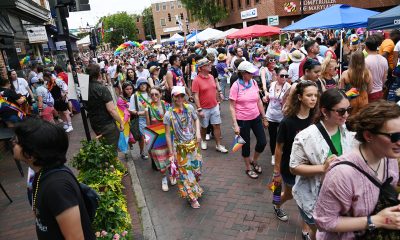
 a&e features1 day ago
a&e features1 day agoYour guide to the many Pride celebrations in D.C. region
-

 U.S. Supreme Court3 days ago
U.S. Supreme Court3 days agoSupreme Court allows Trump admin to enforce trans military ban
-
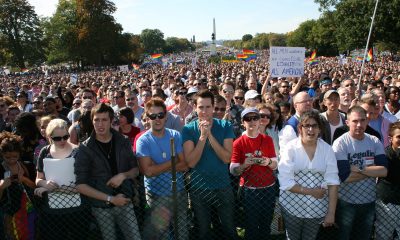
 District of Columbia2 days ago
District of Columbia2 days agoWorldPride permits for National Mall have yet to be approved

